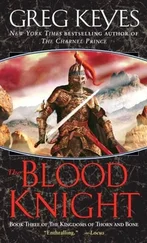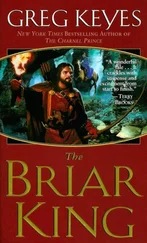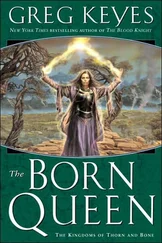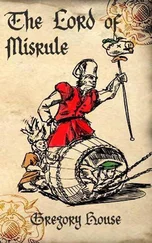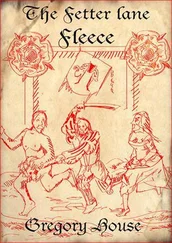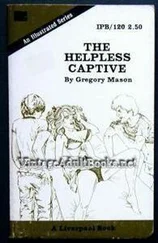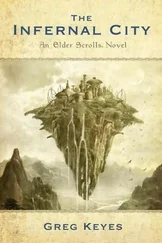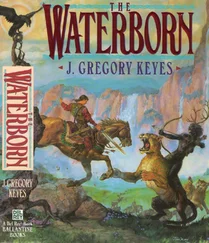Gregory Keyes - The Blackgod
Здесь есть возможность читать онлайн «Gregory Keyes - The Blackgod» весь текст электронной книги совершенно бесплатно (целиком полную версию без сокращений). В некоторых случаях можно слушать аудио, скачать через торрент в формате fb2 и присутствует краткое содержание. Жанр: Фэнтези, на английском языке. Описание произведения, (предисловие) а так же отзывы посетителей доступны на портале библиотеки ЛибКат.
- Название:The Blackgod
- Автор:
- Жанр:
- Год:неизвестен
- ISBN:нет данных
- Рейтинг книги:3 / 5. Голосов: 1
-
Избранное:Добавить в избранное
- Отзывы:
-
Ваша оценка:
- 60
- 1
- 2
- 3
- 4
- 5
The Blackgod: краткое содержание, описание и аннотация
Предлагаем к чтению аннотацию, описание, краткое содержание или предисловие (зависит от того, что написал сам автор книги «The Blackgod»). Если вы не нашли необходимую информацию о книге — напишите в комментариях, мы постараемся отыскать её.
The Blackgod — читать онлайн бесплатно полную книгу (весь текст) целиком
Ниже представлен текст книги, разбитый по страницам. Система сохранения места последней прочитанной страницы, позволяет с удобством читать онлайн бесплатно книгу «The Blackgod», без необходимости каждый раз заново искать на чём Вы остановились. Поставьте закладку, и сможете в любой момент перейти на страницу, на которой закончили чтение.
Интервал:
Закладка:
Below them the river churned spray into the air that the bright sun rendered into a million shattering diamonds and that imparted a wonderful cool dampness to the ordinarily dry atmosphere.
“It's true,” Perkar said, speaking up to his companions still perched on the rim. ”It is true. This is not the same Changeling I once knew.”
“Not at all,” Ngangata agreed.
Hezhi felt her own trepidation melt away. The scale on her arm reacted to the presence of the river not at all, nor did any part of her. This was just water, flowing through a narrow canyon of red and yellow stone. “It's hard to believe that this narrow stream is really the river,” she said.
“This is where I first saw him,” Perkar answered. “This is where my journey to you began— our journey,” he corrected as Ngangata came level to him on the trail. He patted the half Alwa on the shoulder.
“Well,” he called back up to Hezhi. “Come on down.”
“Wouldn't you rather I stayed up here?” she asked.
“No. I would rather have you with me,” he answered, offering his hand to steady her for the next step.
With only a little slipping and sliding, they all reached the bottom of the gorge easily—even Tsem, though Hezhi noticed the half Giant kept casting uneasy glances back up, probably dreading the return climb to the top.
“Before you could feel his coldness, his hunger,” Perkar explained. ”Now…”
“Now it feels like something living,” Ngangata finished for him.
Perkar nodded and shuffled his feet on the narrow stone beach, suddenly nervous. Nevertheless, he reached into a small sack at his waist and produced a handful of flower petals, which he sprinkled into the quieter eddies near shore. He cleared his throat and sang—tentatively, but gradually with more confidence and volume:
“Stream Goddess I
Long hair curling down from the hills
Long arms reaching down the valley
Reposing in my watery dwelling
On and on go I
In the same manner, from year to year…”
Perkar sang on, the song of the Stream Goddess as she had taught it to his father's father, many years past. When he had sung it before, it had been to a quiet stream in his clan's pasture, a little stream he could almost leap across. Here, the crash of the rapids almost seemed to add a rhythm to his words, and then new words entirely, so that seamlessly, he was singing verses to the Song of the Stream Goddess that had never been before. And then, almost without him noticing, he was not singing at all, but the song continued, and from the nearest eddy, a head rose, long black hair swirling in the agitated water, ancient, amber eyes in the face of a young woman gazing up at them with what appeared to be humor.
“… then came a mortal man,” she sang.
“His mother named him for the oak
For the spot where his caul was buried
In the very place I flowed
He grew like a weed
And he came to love me—”
Perkar stood, more and more embarrassed as the song continued, but by now it was a story they all knew. She sang of his foolishness, she sang of her anger, she sang of death. But in the end she finished:
'On and on go I
But not the same now, year to year.
The Old Man eats me not
No longer quickens he with my pain
By foolishness I was saved
By the love of mortal man I was redeemed
And on and on go I
Each year better than the last
No winter cold to eat me
Each season a different-colored spring.”
And as she sang her final verse, she rose up, more magnificent than he had ever seen her, and Perkar's knees quaked, and without even thinking he knelt.
She approached and ran her fingers playfully through his hair.
“Stand up, silly thing,” she admonished. “We have been more familiar than this.”
“Yes,” he began, “but …” He shrugged helplessly but then met her eyes. “I don't deserve this, to be part of your song.”
She laughed, the same silvery music he had heard for the first time what seemed like centuries ago. “Deserving has nothing to do with it,” she replied. “The Changeling is part of my song, and his name never deserved to be sung. But that is how the songs of gods and goddesses must be. You are a part of my story, Perkar, a part I cherish. After all, it was your love that ended my pain and gave me this.” She swept her arms wide, indicating the joyful crash of the water.
He kept his gaze frankly on hers. “Long ago, you told me not to be a boy, dreaming of the impossible. But I loved you so much, and I was so stupid. I would have done anything for you—save to heed your warnings. But this thing I have finally accomplished—in your song you say that my love saved you. But I must tell you truthfully, Goddess, I did not do all of this for love of you.”
She smiled even wider and swept her gaze across Ngangata, Tsem, Yuu'han, and Hezhi.
“He is such a silly thing sometimes, is he not?“ She sighed. She turned back to him, her look one of mock despair. Then she gestured to Hezhi.
Tentatively Hezhi stepped forward. The Stream Goddess was the most beautiful woman she had ever seen. Even though she had thought she understood Perkar, she suddenly realized that she had not. She knew, intellectually, that much of what he had done had been motivated by a love for this goddess, but to actually see her, hear her voice, made it all different. Hezhi's heart seemed to sag in her chest, as she remembered her own shadowed, ungainly outline on the floor in “Sheldu's” damakuta. Regardless, she approached the goddess and was faintly astonished when the strange woman reached and took her hand. The skin of the goddess was cool and damp, but otherwise felt Human enough.
She was even more astonished when the goddess squeezed her hand and then placed it in Perkar's.
“I never said it was love for me that ended the Changeling and set me free,” the goddess explained. ”Only the love of a mortal man. Your love for your people, Perkar, your love for these companions, and your love for this girl. Those are the loves of aman, sweet thing, and those are what set me free.”
“I love you, too,” Perkar answered.
“Of course you do. How could you not? But you understand now what I told you so long ago.”
“I think so. I no longer dream of you somehow becoming my wife, if that is what you mean.”
She only smiled at him and then turned back to Hezhi. “Child, I have a gift for you.”
“Forme?”
A second column of water rose and became something dimmer, more ghostlike than the very real goddess; but it congealed into a recognizable form nevertheless.
“Ghan!” Hezhi cried.
“More or less,” the apparition said curtly—but more than a hint of a smile graced his usually severe features. “Changed but not changed. When you chew up a piece of meat and spit the gristle out—I think I must be mostly gristle.”
“Ghan!” She was weeping again, though she thought that by now she would have no salt or water left in her body.
“Hush, child. You know how I despise such displays.”
“Do you?” Hezhi answered, wiping the lachryma from her cheeks. “ I read your letter, the one you sent by the Mang. The one in which you said you loved me, that I was like the daughter—”
“Yes, yes,” he replied testily. “Old men sometimes write maudlin things.” He softened. “And I probably meant them.”
“What will become of the library?” Hezhi asked. And then, in a blinding flash of insight, “OfNholl”
Ghan shrugged. “The library was my life, but I'm oddly glad now that I did not spend my last days in it. The books remain, and there is always someone. Someone like you and me, at least every generation or two. They will wait, just as they did for you. As for Nhol, who knows?”
Читать дальшеИнтервал:
Закладка:
Похожие книги на «The Blackgod»
Представляем Вашему вниманию похожие книги на «The Blackgod» списком для выбора. Мы отобрали схожую по названию и смыслу литературу в надежде предоставить читателям больше вариантов отыскать новые, интересные, ещё непрочитанные произведения.
Обсуждение, отзывы о книге «The Blackgod» и просто собственные мнения читателей. Оставьте ваши комментарии, напишите, что Вы думаете о произведении, его смысле или главных героях. Укажите что конкретно понравилось, а что нет, и почему Вы так считаете.


